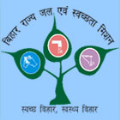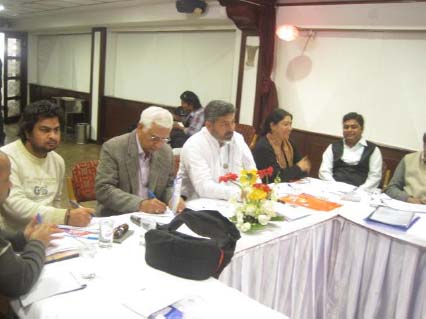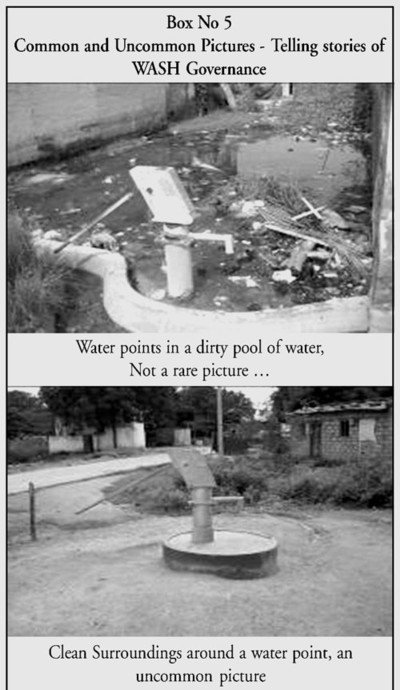Sanitation and Hygiene
Lessons for rural water supply - Assessing progress towards sustainable service delivery - India - IRC International Water and Sanitation Centre, The Hague
Posted on 10 Mar, 2012 04:24 PMThe study looked beyond a simple description of the situation towards broader processes of decentralisation and political leadership, in an attempt to unpack what has gone right or, as in many cases, what has gone wrong, within the rural water sub-sector.
BSWSM invites applications for Hydro-Geologist Consultant, Bihar - Apply by March 22, 2012
Posted on 10 Mar, 2012 09:30 AMContent courtesy: DevNetJobsIndia

Bihar State Water And Sanitation Mission (BSWSM) is the supreme body for implementation of Drinking Water Supply and Sanitation Programme in the State.
PHED invites applications for State Coordinator, (Anganwadi Sanitation, Hygiene Education), Raipur, Chhattisgarh - Apply by March 12, 2012
Posted on 09 Mar, 2012 09:03 AMContent courtesy: DevNetJobsIndia
Description:
In Chhattisgarh, the nodal agency for the water and sanitation sector reforms is Public Health Engineering Department (PHED). PHED is gradually taking a shift in its role from an implementer to a facilitator hence the communities and PRIs will have to play a critical role in development, operation and maintenance of water and sanitation facilities. The Anganwadis centers are the basic unit of Department of Women and Child Development which provide six services namely supplementary nutrition, immunization, health check-up, referral services, pre-school non-formal education and nutrition & health education. Anganwadis are responsible for providing the hot cooked meal as supplementary nutrition to children of age –groups 3-6 yrs along with non-formal pre-school education. In view of the critical services provided through Anganwadi Centers provision of permanent water supply and sanitation facilities is a must for quality delivery of services. In Chattisgarh there are about 30,000 Anganwadis out of which only 10109 have water and sanitation facilities. There is a need for urgent focus on provision of child friendly water and sanitation facilities in Anganwadis. This will require substantial capacity building efforts among various stakeholders at all levels.
Drafting a new National water policy, 2012 without consulting the farmers would be meaningless
Posted on 04 Mar, 2012 11:02 PMAuthor : Phanish Sinha
Draft National Water Policy 2012 - Dialogue organised by NEER Foundation, Meerut on February 18, 2012
Posted on 27 Feb, 2012 10:07 AMGuest post by: Raman Kant Tyagi

Trends in private sector participation in the Indian water sector: A critical review - A Water and Sanitation Programme publication
Posted on 23 Feb, 2012 05:54 PMThe study also analyses the direction in which the sector is heading with respect to private sector participation. Since most PPPs are at early stages of operation, this study focuses only on learnings from PPP design and transaction. This study does not seek to assess the operating or financial performance of PPPs.
IMaCS invites applications for Consultant – Monitoring and Evaluation, Delhi - Apply by February 24. 2012
Posted on 22 Feb, 2012 09:03 AMContent courtesy: DevNetJobsIndia

IMaCS has been engaged by an UN Agency to provide Technical financial and human resource support to various programmes and operation.
Lok Shakti Samiti invites applications for State Facilitator (Total Sanitation Campaign), Raipur, Chhattisgarh - Apply by Februaray 25, 2012
Posted on 22 Feb, 2012 08:53 AMContent courtesy: DevNetJobsIndia
![]()
Description:
Lok Shakti Samiti (LSS) is a non-governmental organisation working on social development issues in rural areas of tribal belt of Chhattisgarh, India. In collaboration with WaterAid (UK), LSS has been intensively working in Raigarh district on community rights for Water, Sanitation and Hygiene (WASH), since 2004.
How valuable are environmental health interventions? - Evaluation of water and sanitation programmes in India - Paper published in the Bulletin of the World Health Organisation
Posted on 21 Feb, 2012 06:11 PMThe paper informs that a number of epidemiological studies on the benefits of water and sanitation interventions have shown that diarrhoea can be reduced by 30–50%.
Understanding governance in WASH sector in Andhra Pradesh - A study by WASSAN
Posted on 18 Feb, 2012 03:38 PMProblems in the water, sanitation and hygiene (WASH) sector have their roots in socio-political issues rather than in technology. This paper presents the report of a survey in 107 villages in rural Andhra Pradesh to illustrate the influence of governance systems.






